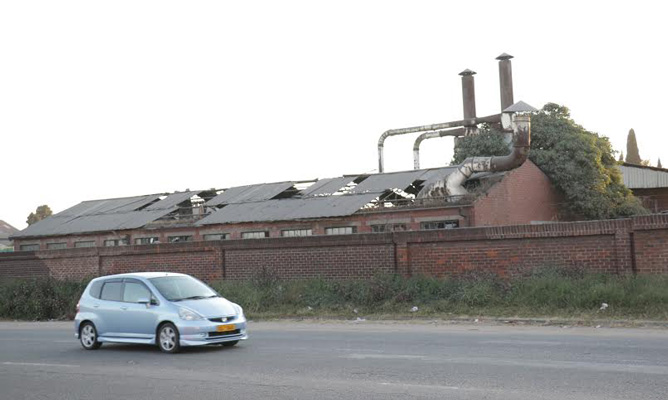
THE Zimbabwe National Chamber of Commerce (ZNCC) says if the ease of doing business does not improve, capacity utilisation would decline to 31%.
BY TATIRA ZWINOIRA In its Economic Outlook for 2016 report, ZNCC said the challenges on capacity utilisation included the depreciation of the country’s major trading partners’ currencies, high cost of doing business, use of antiquated machinery and equipment, weak aggregate demand and liquidity constraints.
“In the manufacturing sector, capacity utilisation declined by 2,2 percentage points from 36,5% in 2014 to 34,3% in 2015.
If challenges such as the continued depreciation of the country’s major trading partners’ currencies, high cost of doing business, use of antiquated machinery and equipment, weak aggregate demand and liquidity constraints, among others, are not addressed, 2016 will see capacity utilisation in the sector deteriorating further, closing the year slightly above 31%,” the report read.
ZNCC said the combination of local deflation and the depreciation of regional currencies also posed a threat to the manufacturing sector, against a strengthening greenback underpinned by the Federal Reserve interest hike.
It said the recent National Budget for South Africa 2016/17 is a contractionary budget with the aim of maintaining economic pace than growing it, which means South Africa companies will keep looking for new markets like Zimbabwe.
“In trade finance, the noticeable trend has been that of heavy reliance on offshore financing by most Zimbabwean traders. This could be as a result of the cavalier lending approach by most banks which has seen them taking an extremely conservative stance leaving traders with no choice, but to scurry for external lines of credit,” ZNCC said.
“The downside to it could be that with the waning rand, which shed close to 14% in 2015, most financiers, notably from South Africa, prefer a dollar-denominated balance sheet hence they have been lending to Zimbabwean firms as an indirect way of hedging against a troubled domestic currency.”
- Chamisa under fire over US$120K donation
- Mavhunga puts DeMbare into Chibuku quarterfinals
- Pension funds bet on Cabora Bassa oilfields
- Councils defy govt fire tender directive
Keep Reading
The projected decline in capacity utilisation is in contrast to a forecast by the Confederation of Zimbabwe Industries (CZI) of an increase in capacity utilisation to 45%, hinging on government and the private sector reaching an agreement on the indigenisation policy.
In January, CZI president Busisa Moyo said a 65% target in capacity utilisation was a precursor to economic revival and that government had to play a part.
Last week, government authorised cancellation of company licenses, effective April 1, of foreign-owned banks, mines and manufacturing companies that are non-compliant with indigenisation policies.
Leading economist, Prosper Chitambara said the implication of this order by government would have a negative effect on the manufacturing sector.
“The implication is quite negative in the sense that local manufacturers are crying out for newer technologies to improve capacity utilisation. So this move will lower foreign direct investment and affect these companies from getting these newer technologies,” he said.
He said the move would alienate investors and the private sector from government.










